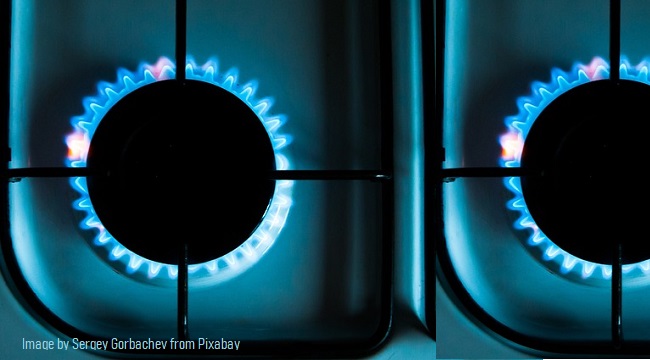Why Banning Gas Stoves Is Not a Serious Way to Fight Climate Change

In July, in an effort to combat global warming, Berkeley, California, became the first city in the United States to prohibit natural gas in new buildings, including residential homes.
“We need to tackle climate change every way that we can,” said Berkeley City Councilwoman Kate Harrison, who led the effort.
Other cities, including Sacramento, Los Angeles, and San Jose, are developing their own policies in what appears to be the latest trend to save the planet. But does banning gas for heating and cooking in residential developments make sense?
Energy Loss
Lawmakers and environmental activists often overlook important issues.
Assuming that people will continue to cook their meals at home and that exotic solutions such as sun-powered grills are exercised by a tiny fraction of the population, people will still need devices that heat their pots and pans for cooking.
On a gas stove, you burn natural gas to heat the water for your tea. In the case of an electric stove, you burn natural gas (or coal, oil, or biomass) in a power plant to heat water that turns turbines that produce electricity that heats the stove that heats the water for your tea. Simple physics reminds us that as energy passes from one state of matter to another, energy loss is inevitable. Burning gas to make electricity is only about 40 percent efficient, on average.
The environmental effect of switching from gas stoves to electric stoves depends largely on how the electricity is produced. If your electricity comes from renewable sources, there is greater potential for shrinking your carbon footprint. If your electricity comes from coal-powered plants that don‘t capture carbon dioxide, then switching could be worse for the environment since coal produces more carbon dioxide emissions than natural gas.
Renewable Energy
In 2018, about 17 percent of electricity produced came from renewables, with 35 percent coming from natural gas, 27 percent coming from coal, and 19 percent coming from nuclear.
Given current U.S. electricity production, if you banned natural gas stoves across the country, only two out of ten would be powered by renewable energy—the remaining eight would be powered by electricity generated from coal (three), nuclear (two), and natural gas (three).
California produces about 44 percent of its electricity from renewables, so swapping natural gas for electricity makes more sense there than, say, Florida, where renewables generate just three percent of the state’s electricity.
There are other problems, however. Take peak demand. Electric heating usually uses a lot of energy—to such an extent that British grid operators need to predict when a major soccer match ends so that they can ramp up production at tea time, when millions of Brits plug in electric kettles. (This is less of a problem today because of on-demand streaming.)
What this means is that even if electricity from renewables increased substantially, due to the intermittent nature of wind and solar power, you might end up in a situation where gas-powered electricity production plants are working overtime during peak demand. This is an issue that electric grid operators face on a daily basis.
Natural Gas Cooking Bans
While cooking is far from the main consumer of electricity, a mass switch from cooking on gas to cooking on electricity could add stress to the system. Moreover, if bans extend from cooking on gas to heating homes with gas, the problems would likely be even more severe.
Of course, in some cases, especially where natural gas infrastructure is not in place, cooking with electricity from the grid might make more sense than expensive new investments in natural gas pipelines. But if operational pipelines are already there, banning gas is a poor use of resources.
To be sure, these issues are not unsolvable. Smart grids, better planning and forecasting, more efficient methods to store and release electric power (think giant batteries or hydroaccumulation plants), superior electric stoves, and better technology in general might solve some or all of these problems. But banning gas-powered stoves before this better technology has arrived is similar to banning horses before cars had been invented.
Some say bans on cooking with natural gas is a symbolic gesture. Indeed. But it is the worst kind of symbol—one designed to make people feel good rather than do good. An outright blanket ban on natural gas in homes, especially if extended throughout the country, would make little environmental sense—and no economic sense.
Frankly, such ill-conceived gestures undermine the good faith efforts of those seeking to pass sound environmental policy.
This article originally appeared in the Washington Examiner.
AUTHOR
Zilvinas Silenas
Zilvinas Silenas is the president of the Foundation for Economic Education (FEE).
RELATED TWEET:
A government that thinks it can control what stove you use is a government with too much power.
— Sen. Marsha Blackburn (@MarshaBlackburn) January 13, 2023
EDITORS NOTE: This FEE column is republished with permission. ©All rights reserved.


Leave a Reply
Want to join the discussion?Feel free to contribute!